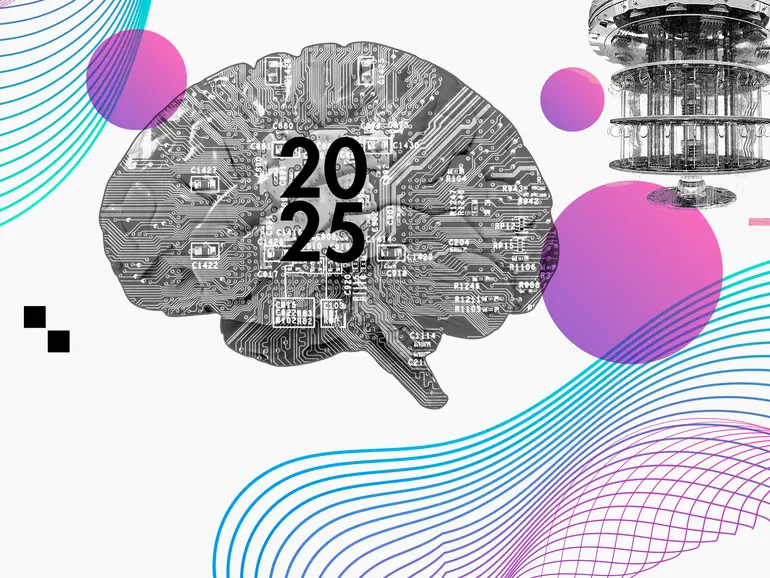Scaling AI for results: Strategies from MIT Sloan Management Review
AI really can pay off. But leaders must take a systematic approach, understand how the technology works, and let their team leaders determine how it’s used.

Faculty
Rama Ramakrishnan is a Professor of the Practice in AI/ML. His teaching, research, and advisory interests center on the practical business application of Predictive and Generative AI techniques and in the creation of intelligent products and services.
Rama is a passionate educator and was awarded Sloan's most prestigious teaching award, the Jamieson Prize for Excellence in Teaching, in 2025 and MIT's Teaching with Digital Technology Award in 2024. He strongly believes that AI knowledge should be accessible to everyone and shares his expository work at https://ramakrishnan.com. He is also an AI columnist for the MIT Sloan Management Review and a member of its editorial advisory board.
Prior to joining MIT Sloan, Rama was a tech entrepreneur and executive for over 20 years. He has founded or has been a senior executive in four software companies that have exited to technology titans: Oracle, Salesforce, and Demandware. He is active in the startup ecosystem as an advisor and angel investor.
Most recently, Rama was senior vice president at Salesforce (NYSE: CRM) and chief data scientist for Salesforce Commerce Cloud. In this role, he led Salesforce Einstein for Commerce—the analytics/machine-learning platform that powers Salesforce Commerce Cloud—and was responsible for product management, engineering, data science, and cloud production operations. The Einstein platform uses analytics techniques to predict and influence the shopping behavior of hundreds of millions of unique shoppers monthly.
The path that led Rama to Salesforce started in July 2010 when he founded a startup, CQuotient, to build a data-science-based personalization platform for retail and e-commerce. Backed by funding from Bain Capital Ventures, Rama built and grew the company to a successful exit to Demandware (NYSE: DWRE) in October 2014. As a member of the Demandware executive team, Rama was involved in the successful sale of Demandware to Salesforce in July 2016 for $2.8 billion. CQuotient technology, now known as Salesforce Einstein for Commerce, is one of the top B2C recommendation engines in the world and influences the shopping behavior of billions of consumers annually.
Prior to founding CQuotient, Rama taught analytics at MIT Sloan, was chief scientist and vp of R&D at ProfitLogic, was chief analytics officer and vp of R&D for the retail business of Oracle, founded two analytics companies, and was a consultant at McKinsey & Company.
Rama has a BTech degree from the Indian Institute of Technology, Chennai, and MS and PhD degrees from MIT.

AI really can pay off. But leaders must take a systematic approach, understand how the technology works, and let their team leaders determine how it’s used.

They’re nearly all about artificial intelligence, with a guest appearance from quantum computing.
Generative AI uses should be taken on more carefully because they carry greater risks, said professor of the practice Rama Ramakrishnan. "The first mistake is being overly aggressive and essentially deploying the LLM for a task without enough scrutiny," he said. On the other extreme, Ramakrishnan said, are people "who are so apprehensive about the hallucinations and the error rates, they literally are paralyzed. They don't want to do anything."
Professor of the practice Rama Ramakrishnan wrote: "Some people posit that business leaders neither want to nor need to know how LLMs and the generative AI tools that they power work — and are interested only in the results the tools can deliver. That is not my experience. Forward-thinking leaders care about results but they are also keenly aware that a clear and accurate mental model of how LLMs work is a necessary foundation for making sound business decisions regarding the use of AI technologies in the enterprise."
In a recent paper, professors Michael Cusumano, Vivek Farias, and professor of the practice Rama Ramakrishnan suggested that "as with past market-disrupting technologies, generative AI is starting to reap the benefits of an evolving ecosystem of infrastructure layers and enabling tools and frameworks, along with a rapidly growing set of applications."
"While GenAI promises to revolutionize everything from customer service to product development, its optimal role remains a work in progress."
Learn how to lead AI initiatives strategically and effectively with MIT Sloan Executive Education's 5-day in-person course. Gain a comprehensive understanding of AI technologies and their impact on the future of work.
This online program from the MIT Sloan School of Management and the MIT Computer Science and Artificial Intelligence Laboratory (CSAIL) challenges common misconceptions surrounding AI and will equip and encourage you to embrace AI as part of a transformative toolkit. With a focus on the organizational and managerial implications of these technologies, rather than on their technical aspects, you’ll leave this course armed with the knowledge and confidence you need to pioneer its successful integration in business.